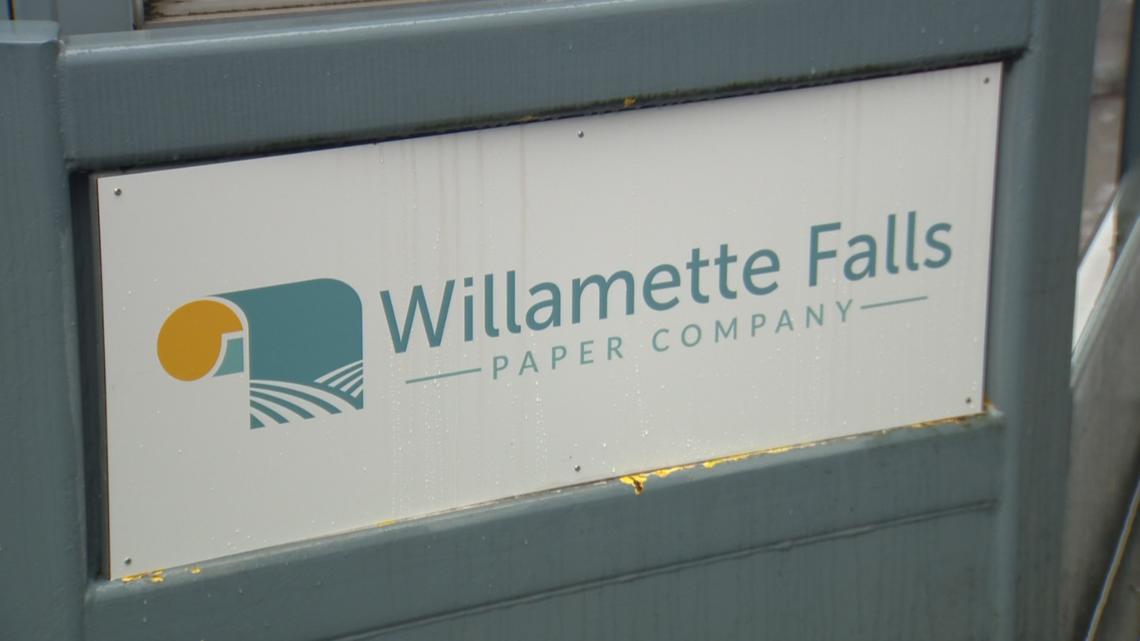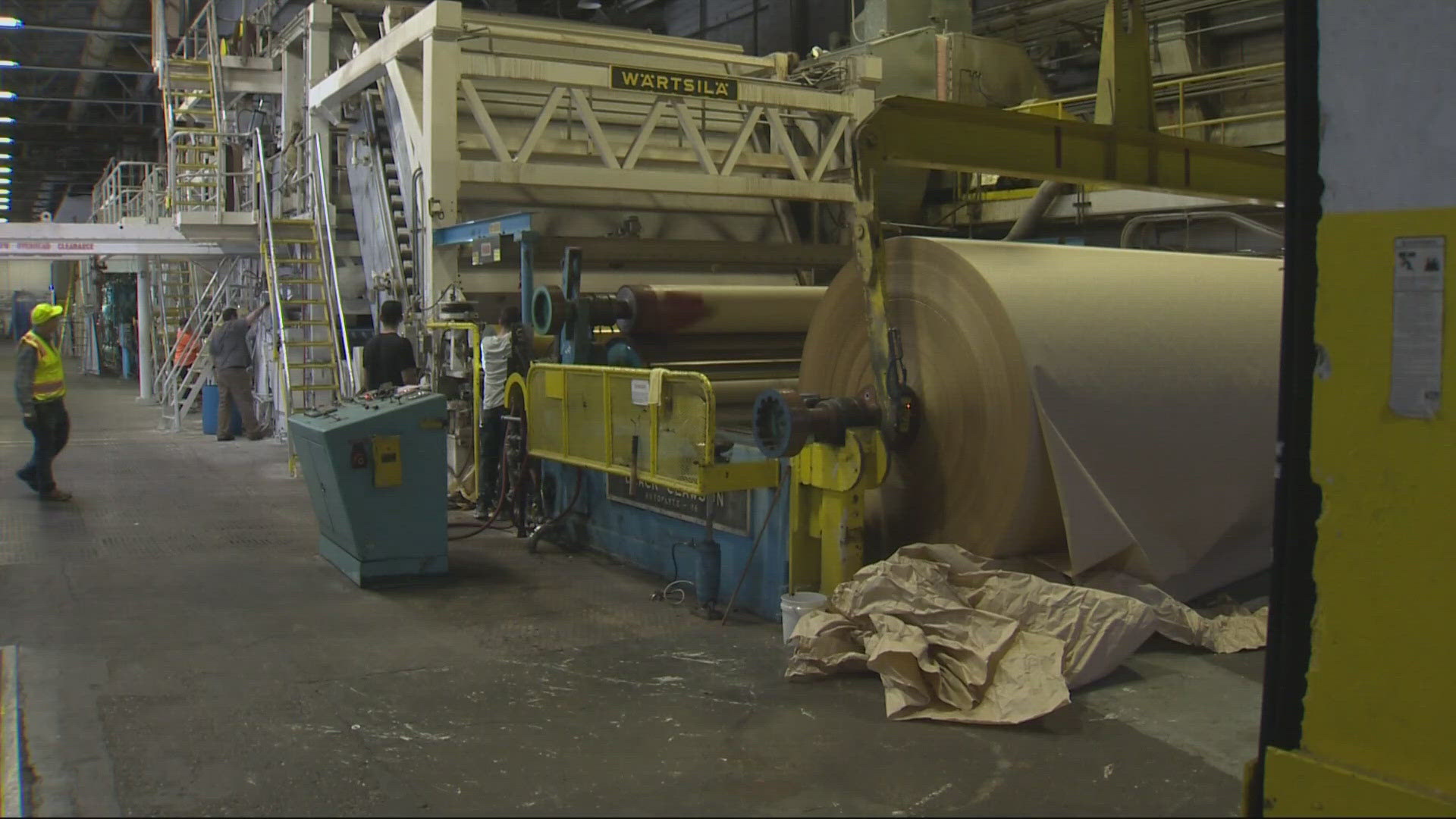WEST LINN, Ore. — A paper mill in West Linn will lay off over 150 employees and will likely shut down unless new owners swoop in to buy the building which has stood near Willamette Falls for over a century.
Willamette Falls Paper Company issued a legally required notice of the mass layoff to state and local officials on Tuesday, which will affect 158 out of the company's 223 total employees. According to the company, employees were notified the same day.
The layoffs will happen by the end of the week, Aug. 9, giving workers just a few days' notice. The company said it notified workers "as soon as practicable under the difficult circumstances faced by the faltering company," arguing that this constitutes an exception to the 60-day notice required under law.
In an email to KGW, the company's president called this a "temporarily curtailment" and said employees are still being informed of specific job losses this week. But the WARN Act notice indicates that the plant could close Aug. 30 unless a buyer decides to take over the plant, or if they can otherwise raise enough money to stay in business.
West Linn Mayor Rory Bialostosky said he was saddened to receive the notice, particularly from one of the largest employers in the city — perhaps the largest.
"I opened it, read it, and just immediately started thinking about the impact to the families," he said. "From the legal document, you were told the other day — just the other day — that you're losing your job by the end of the week. So that’s really impactful, short timeline for folks to find out such devastating news."
Most of the impacted employees work in production or operations, but cut positions also includes electricians, mechanics, millwrights, truck drivers and some in administration.
More layoffs are expected over the next few weeks, the company said.


Bialostosky said he hopes to see someone else come in and keep the 135-year-old paper mill alive, but acknowledged that it's an incredibly tight timeline.
"It’s the fabric of our community ... this was something that in the 1800s started in West Linn because the falls was nearby," he said. "The mill is part of West Linn, it's part of our community."
Willamette Falls Paper Company has occupied the facility since 2019, taking over from West Linn Paper Company after it shut down in 2017. At the outset, the new paper company hired almost a hundred employees laid off when the previous plant closed.
Chris McCabe is the executive director of the Northwest Pulp and Paper Association, a group that represents five mills in Oregon. While his group doesn't include Willamette Falls Paper Company, and he couldn't speak to their specific circumstances, he blamed state laws and regulations for an overall downturn in the industry.
"Our members compete on a global basis, and markets have been very tight over the last several months," McCabe said. "You start with very tight markets, very down markets for demand for pulp and paper products, and then you layer all of these regulatory costs, fees and taxes on top of that and it makes the facilities in Oregon less competitive."
McCabe pointed to the Oregon Department of Environmental Quality's coming climate protection rule and its existing air permitting program, as well as the habitat conservation plan adopted by the Oregon Department of Forestry earlier this year.
"In the forest products industry in general and the entire supply chain ... through the new state habitat conservation plan we're seeing new regulations, new burdens, new costs everywhere from the timber growers all the way down to the manufacturing and pulp and paper, solid wood manufacturing," he said.
When KGW spoke with them in 2020, managers at Willamette Falls Paper Company said they were using a method of making paper from a combination of straw and wood pulp, with the idea of transitioning to 100% straw pulp over time — a method they said was more sustainable and cut down on waste.

